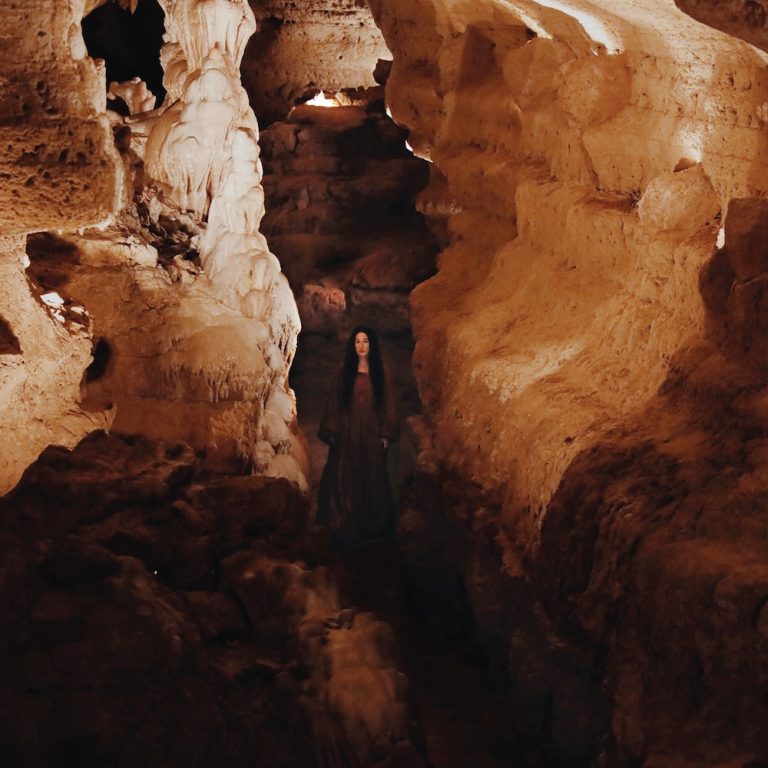With her sixth studio album, Arkhon, Nika Roza Danilova aka Zola Jesus continues to explore her two-pronged identity: that of the glitch-shaman and the Hollywood chanteuse.
On “Lost”, she blends eerie accents, a hook-y melody delivered via a plaintive vocal, and beats that conjure dimly lit nightclubs, psychedelic campsites, and all-night raves. “The Fall” opens starkly a la 2011’s Conatus, transitioning into R&B swing-beats and soaring vocals. With “Undertow”, Danilova reconfigures melodic elements from Tears for Fears’ “Everybody Wants to Rule the World”. Her voice is as crystalline as ever, though textural swaths that recall her lo-fi debut function like fine-grit sandpaper, giving the track a mainstream yet apocalyptic feel.
If the first three tracks of Arkhon spotlight Danilova pursuing stylistic integrations (following the lead of 2017’s Okovi), “Into the Wild” shows her navigating a more one-dimensionally commercial sound and borderline sentimental lyric. “How can love / be misguided / when your heart learns to beat?” This is theme-song territory, Billie Eilish’s “No Time to Die” meets Celine Dion’s “My Heart Will Go On”, albeit with a doppelgänger twist. And yet, despite sublime aspirations, the song’s melody falters. Additionally, various sonic streams and ambient forays fail to sufficiently cohere.
With “Dead and Gone”, Danilova pivots in a blacklounge direction, addressing lost romance and heartache, though her performance sounds a bit perfunctory. Sonic contexts, too, seem unfinished, like paint that should have been further explored on the palette before it was applied to the canvas. “Desire”, on the other hand, delivers on its simple promise. Backed by a piano, Danilova has room to breathe, unfurl emotionally, and land in one of her more authentic performances.
“Sewn”, the longest track on Arkhon, stretching over five minutes, features trashy beats, a throbby bass, and swirly noir sounds, a mix that brings to mind a punk-friendly Tool or garage-y Sunn O))). Danilova’s voice is submerged in the mix, as if she’s stranded in a dungeon or trying to climb out of an abyss. With “Efemra”, Danilova forges a compelling paradox, wielding a pop-leaning melody while voicing paranoia; think Diamanda Galás covering Taylor Swift. With Closer “Do That Anymore”, she similarly fronts a rhythm that points to the hypno-gestalts of The Cure while constructing a catchy melody drawn in part from Hole’s “I Think That I Would Die”.
Arkhon’s opening tracks represent some of Danilova’s strongest work. Much of the album, however, including tracks that are ultimately effective, finds the artist seemingly undergoing a bit of an aesthetic crisis – struggling to embody sonic and lyrical themes, battling with mixes she can’t quite corral. Still, as a whole, Arkhon is a distinct statement. Even Danilova’s uneven work manages to be intriguing.

